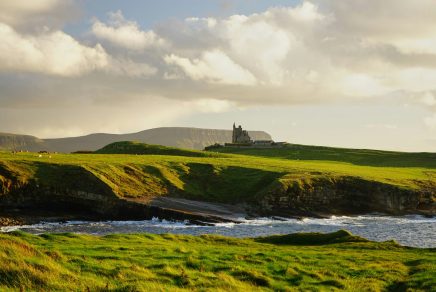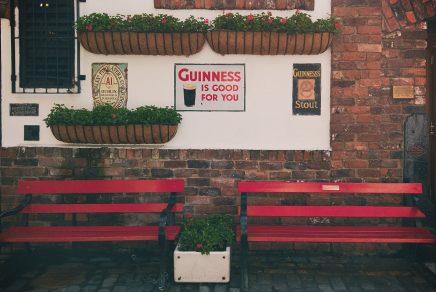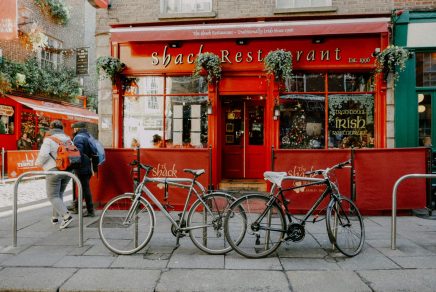The heart of social life, Ireland’s pubs are a must-visit during any stay on the green island. After a long day of sightseeing, but also for an afternoon break, head to the local for one of the most interesting cultural experiences. More than just a place to drink, it is an institution not to be missed. As you can see, the pub is one of the most authentic cultural immersions during a trip to Ireland.
However, a few rules of etiquette will be useful to ensure an enriching discovery!
A brief history of the pub
Derived from “public house,” the word pub has come into common usage over time. Originally used to describe a neighbor’s living room open to the public, it still represents a form of communal living room in the neighborhood. In fact, the Irish rarely drank at home, preferring to consume in a pub, an opportunity to meet friends for conversation. Things haven’t changed much… In these pubs in Ireland, including Dublin, it’s still quite normal to chat with strangers while watching a Gaelic football match on TV, pint in hand.
It’s also where major life events such as weddings, christenings and funerals are celebrated. Many Irish couples have met there for the first time! And outside the big cities, it’s not uncommon to see children running between the stools and tables.
Best practices for visiting an Irish pub
When you enter a typical pub, don’t expect to be greeted or assigned a table. Take off your hat if necessary and move to an empty table if you want more privacy for conversation. Prefer to meet people? Then sit at the bar, as it’s considered impolite to disturb seated patrons, but it’s very common to chat about the weather and other topics with customers at the counter.
Ordering a Guinness in Ireland
Who visits Ireland without drinking a good Guinness? The Irish are so proud of it! However, you should know that ordering this Irish beer can be an experience in itself. Stand up to order at the bar, but don’t dare grab your drink before it’s handed to you! Guinness is poured in two holy steps.
After filling the glass, it’s imperative to allow the foam to form before pouring a little more on top. This creates the thick, white head characteristic of the dark beer. Any establishment that serves it in one step is not worthy of the name pub!
What to eat in an Irish pub?
More and more pubs offer food, but don’t expect a restaurant menu. At lunchtime you can get soup, a sandwich and a few daily specials. In the evening, you’ll find more classic pub grub (Irish stew, fish and chips, chowders, and cabbage and meat-based dishes).
Paying for a round
A common practice in Irish pubs is to pay for a round if you are in a group. One person stands up and goes to the bar to order drinks for everyone. Choose your drink carefully, as it’s likely you’ll be drinking the same thing all night while others pay for their rounds. Don’t skip your turn, it’s tradition!
Note that few establishments accept credit cards, except for large bills. Also, unless you’re in a less traditional pub with table service, tipping is not common.
Participate in social life
Socializing comes naturally in a pub. There’s no need to extend your hand to introduce yourself. Instead, strike up a spontaneous conversation about anything and everything. Avoid religious or political topics, but don’t be afraid to make jokes. The Irish are known for their good humor. They love craic (pronounced crack), which means having fun and laughing!
Take the opportunity to explore the traditional Irish music scene. Many traditional evenings are organized in pubs for the enjoyment of visitors.
Pub hours in Ireland
Unlike in Quebec, pubs in Ireland are often only open until 23:30. Or just an hour or two later on weekends. In some cities, they may close their doors at 2:30 a.m. Thirty minutes before closing, you’ll hear a bell ring to mark the last chance to order drinks. A second bell will signal that the pub is closing.








